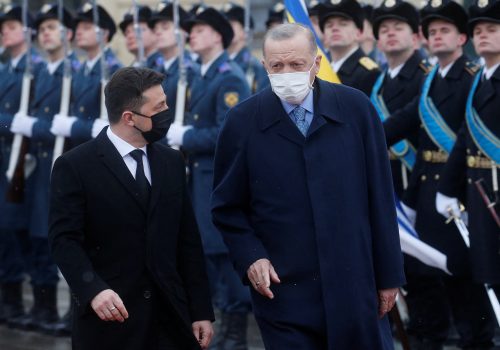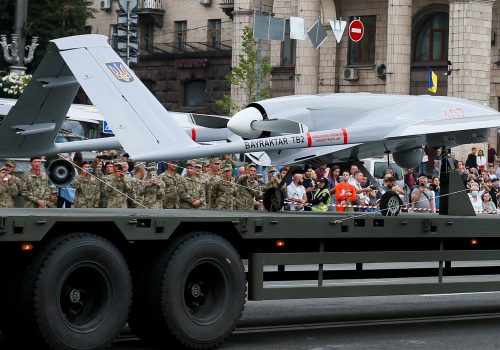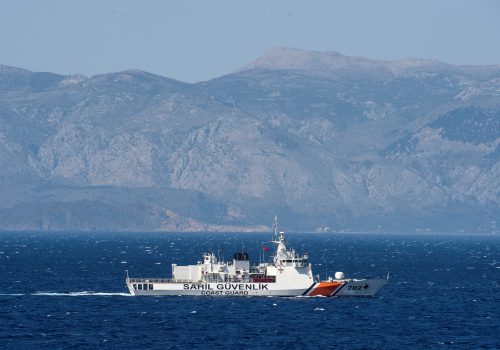Techno-geopolitics and the Turkish way of drone warfare
Contrary to the African proverb “speak softly but carry a big stick,” Turkish strategic culture tends to speak loudly, carry a big stick—and sometimes use that very big stick after a brief talk. With Turkey’s burgeoning drone-warfare edge, enabled by the nation’s rising defense industries, unmanned aerial systems have become a very big stick for the Turkish military. From a realpolitik viewpoint, at present, Turkey’s new drone edge has amplified the Turkish elite’s abovementioned strategic thinking by rendering the “military guidebook” less casualty prone, more surgical, less burdensome on defense economics, and less reliant on foreign assistance. Militarily, winning contemporary wars is about winning the battle networks, and this is the underlying reason behind the Turkish Armed Forces’ UAS success. In the eyes of Turkish defense planners, drones are not merely targeted killing or “war on terror” assets, but crucial components within a network-centric architecture. This paradigm extends to a wide range of tasks, from anti-armor salvos to the suppression of enemy air defenses.
At present, Turkey’s military capabilities can be matched by those of only a few NATO militaries and, notably, only by the United States for drone-warfare capacity. Although a large number of articles have focused on the technical aspects of Turkey’s rapid dronization, few, if any, have correctly touched upon the geopolitical ramifications of this robotic-warfare breakthrough. While these assets are not magical wands to address all threats across the spectrum, the Turkish way of drone warfare has introduced various innovative concepts of operations, which have visibly paid off in a broad frontier including Libya, Syria, and Karabakh. Of particular importance to NATO, and resembling the Arab-Israeli wars of the Cold War era, Turkey’s robotic-warfare solutions have proven to be effective against Soviet-Russian weaponry. The unfolding Russo – Ukrainian War, at the time of writing, comes as the latest case.
Related reading
Subscribe
Sign up for the Atlantic Council in Turkey newsletter to stay up to date on the program’s work.

The Atlantic Council in Turkey aims to promote and strengthen transatlantic engagement with the region by providing a high-level forum and pursuing programming to address the most important issues on energy, economics, security, and defense.
Image: TB2 drone of Turkish drone-maker Baykar is seen at a stand during the first day of SAHA EXPO Defence & Aerospace Exhibition in Istanbul, Turkey, November 10, 2021. REUTERS/Umit Bektas - RC2MRQ9QBGU1


